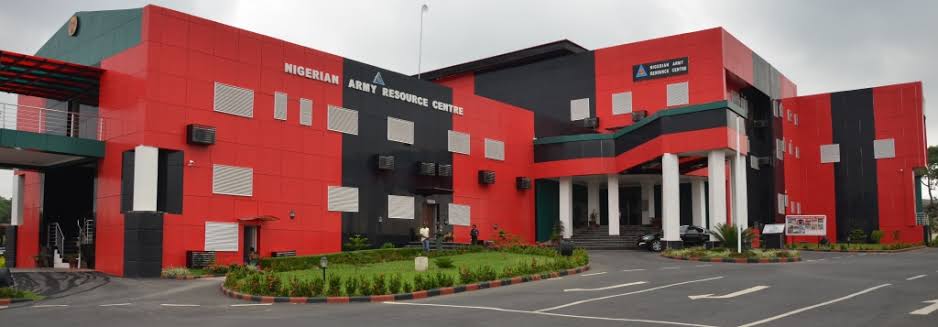
By Sumaila Ogbaje
Nigerian army centre graduates 141 personnel in indigenous languages
The language proficiency course in Hausa, Igbo and Yoruba was conducted in collaboration with a leading study institution, Laclic Services Ltd, for a duration of two months at the centre.
Each of the participants learnt two of the three languages during the period of study.
Speaking at the occasion, Chief of Army Staff, Lt.-Gen. Tukur Buratai, represented by the Chief of Administration, Maj.-Gen. Muhammed Yusuf, said that his approval for the course was informed by the adaptive nature of the domestic security environment.
Buratai said that the Nigerian environment was severely undermined by plethora of threats, such as terrorism, herdsmen-farmers clashes, cattle rustling, armed robbery, kidnapping, assassinations, cultism and ritual killings amongst others.
He said that the potency of those threats to undermine Nigeria’s national security, cohesion and peaceful coexistence was further exacerbated and reinforced by the proliferation of small arms and light weapons across the country.
According to him, the current domestic security realities have necessitated the deployment of the Nigerian Army troops in 34 states of the federation for internal security operations.
“This is undertaken concurrently with the Northeast counterterrorism and counterinsurgency operations. However, all these operations are intelligence-driven.
“Thus ability of troops to adequately and professionally respond to these security challenges depends on reliable intelligence which is partly contingent on the ability to communicate with the local populace.
“Our local operations are, therefore, dependent to a great extent on our ability to communicate in our indigenous languages, particularly the three major ones: Hausa, Igbo and Yoruba.
“Thus, proficiency in these local languages will hasten our social integration and ability to penetrate the local operating environments.
“These domestic security realities were major determinants on the NA language policy and initiative,” he said.
Buratai, however, urged the participants to continue to use every opportunity that came their ways to improve on their current proficiency in order to become adequately fluent and capable of engaging in conversations at their places of deployment.
He also urged them to be ready to participate in an annual online language re-certification test being institutionalised to regulate their ability to stay in tune with languages they had learnt.
The Director General of NARC, retired Maj.-Gen. Garba Wahab, said that the essence of the course was to give the troops engaged in international operations the opportunity to be able to communicate with the locals in their areas of operation.
Wahab said that the troops needed to have adequate information in their areas of operation to be able to gather intelligence, adding that language proficiency was key to achieving that.
According to him, the course will also assist the individuals to relate in whatever environment they find themselves in Nigeria.
He said that after the phase one, they would move to phase two which would be for those going to the North East for them to be able to understand Kanuri.
“Then the phase three is for French and Arabic because we are surrounded by French speaking African countries and a lot of people we relate with speak Arabic.
“So if you have a soldier who can speak Hausa, Igbo, Yoruba, French and Arabic, it will be great,” he said.
Wahab enjoined the participants to constantly practice the languages they had learnt in order to attain perfection and be able to pass the periodic test that would be conducted for them going forward.
A participants and Course Senior, Brig.-Gen. Flora Pearse, who said she participated in Hausa and Igbo language classes, said the course would help her to succeed in her future assignments.
She said that she would be able to henceforth relate well with people from different parts of the country and communicate effectively.
News Agency of Nigeria (NAN) reports that the participants acted out play to showcase their proficiency in the three languages they learnt during the course.
While some Yoruba participants acted a drama in Igbo language, some Hausa and other non-Yoruba participants acted in Yoruba and Igbo while the South-South groups acted in Hausa. (NAN)
